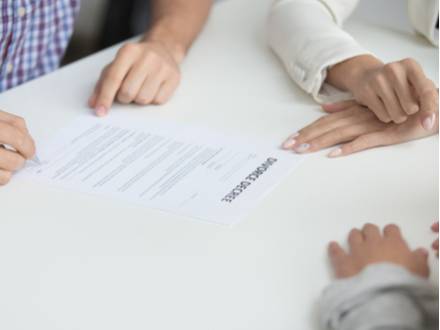DuPage County Attorneys for Mental Health and Addiction in Divorces
Supportive Lawyers for Sensitive Divorce Matters in Naperville, IL
Prior to, during, and after a marriage, addiction and mental health issues can have a significant impact on a couple's legal relationship. These matters can serve as a basis for annulment, and they may lead to divorce and disrupt parenting plans. Further complicating matters, these diseases often feature extended periods of relative normalcy that are punctuated by unpredictable flare-ups. Attorneys and judges must design orders that both hope for the best and prepare for the worst.
At Pesce Law Group, P.C., we understand the possibly devastating impact that mental health problems and substance abuse issues can have on a family. We can prepare a plan that both encourages troubled spouses and parents to get the help they need and protects other family members. Only then can these orders be considered to be in the best interests of the children.
Marriage Issues
According to 750 ILCS 5/301, if a party lacked the ability to consent due to mental "incapacity," the marriage is invalid. This level of incapacity typically stems from a severe brain injury or some similar condition that renders the victim essentially helpless.
While "habitual drunkenness" and/or "excessive use of addictive drugs" are no longer considered grounds for divorce under Illinois law, a person's substance abuse or mental health issues may be a valid reason for their spouse to wish to end the marriage. In these cases, a spouse who believes that remaining married would not be in the best interests of the family can file for divorce for reasons of irreconcilable differences. In Illinois, irreconcilable differences are the only grounds for divorce after the state eliminated fault-based divorces.
Divorce Issues
If the troubled spouse has a history of violence, which typically includes both actual acts and credible threats, a court may grant a protective order. This order may prohibit or limit contact between the troubled spouse and other family members, including those family members who live elsewhere, such as grandparents and in-laws. Other common provisions include a requirement to obtain treatment or counseling.
Even if an immediate protective order is not an option, long-term protective orders are usually appropriate. These orders can include:
- Limited Visitation: Courts are usually reluctant to forbid contact between parents and children, except in extreme situations. However, judges may order supervised visitation or treatment as a condition for visitation.
- Consumption: Many visitation orders include provisions that the parent must not consume alcohol or drugs within the 24 hours preceding visitation and that these substances be absent from the house during visitation.
A plenary order of protection lasts two years once it goes into effect, though before it can be approved, both the victim and the alleged abuser will have to attend a court hearing. If the alleged abuser does not appear in court, a default judgment may be entered against them.
A court may enter other orders as well, based on the facts and circumstances of each case. Mental health and addiction issues do not automatically disqualify a parent from visitation or even from full custody, but the judge will carefully consider the parent's situation. If a parent has serious mental health or substance abuse issues that would put the child at risk, the court could grant the other parent sole custody rights.
Contact a Naperville, Illinois Divorce Attorney Today
Parents do not need to be flawless, but they do need to demonstrate good overall health and fitness. At Pesce Law Group, P.C., our Naperville divorce lawyers are ready to help you navigate these complex waters. Contact us today at 630-352-2240 for a free consultation. We are ready to listen to your concerns about your divorce.
| Mediation, Arbitration, and Litigation in Illinois Divorces |
 When a marriage ends, one of the biggest questions couples face is how to handle the divorce process. Some divorces go to court, but most are resolved privately through mediation and, occasionally, arbitration. Each method has its own advantages, challenges, and impact on the final...
When a marriage ends, one of the biggest questions couples face is how to handle the divorce process. Some divorces go to court, but most are resolved privately through mediation and, occasionally, arbitration. Each method has its own advantages, challenges, and impact on the final...| Is Alimony Automatic in Illinois Divorces? |
 Alimony, called maintenance under Illinois law, is not automatic in an Illinois divorce. Whether maintenance is awarded depends on the facts of the marriage and the financial situation of each spouse. Courts look at need, ability to pay, and fairness, not assumptions.
While divorce is relatively...
Alimony, called maintenance under Illinois law, is not automatic in an Illinois divorce. Whether maintenance is awarded depends on the facts of the marriage and the financial situation of each spouse. Courts look at need, ability to pay, and fairness, not assumptions.
While divorce is relatively...| Can We Get Divorced Without Going to Court? |
 If you and your spouse want to get divorced but avoid a long, ugly courtroom battle, you have options. Illinois law allows for several ways to get divorced outside of traditional court litigation.
At Pesce Law Group, P.C., our DuPage County divorce attorneys are experienced in mediation and other...
If you and your spouse want to get divorced but avoid a long, ugly courtroom battle, you have options. Illinois law allows for several ways to get divorced outside of traditional court litigation.
At Pesce Law Group, P.C., our DuPage County divorce attorneys are experienced in mediation and other...











 630-352-2240
630-352-2240



